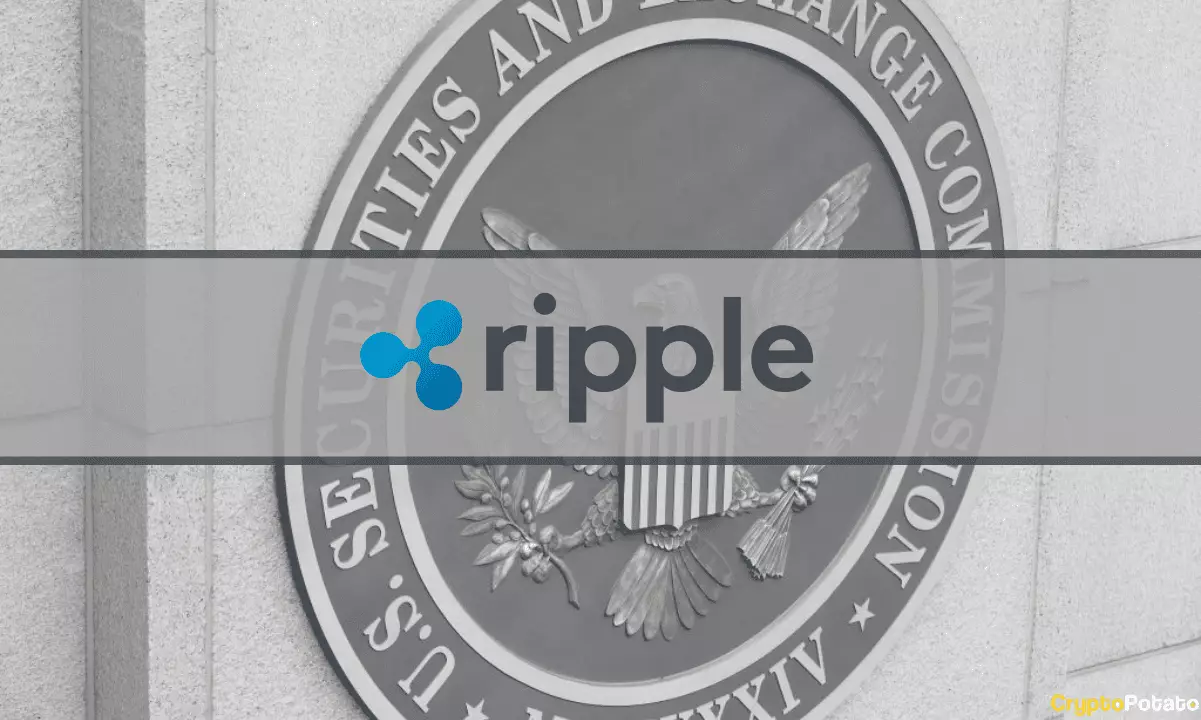The tumultuous relationship between regulatory agencies and the cryptocurrency industry has reached a new chapter with the recent appeal filed by the U.S. Securities and Exchange Commission (SEC) in the ongoing lawsuit against Ripple Labs. This action highlights the intense scrutiny that blockchain technologies, particularly tokens like XRP, are facing as they navigate the complex legal landscape surrounding securities regulation. The SEC’s move to overturn an earlier ruling that deemed secondary sales of Ripple’s XRP not to be securities raises profound questions about the future of cryptocurrency regulation in the United States.
On October 2, 2023, the SEC announced its intention to appeal a significant ruling made by Judge Analisa Torres earlier this year, which found that XRP sales did not meet the criteria set out in the Howey Test—an essential legal benchmark for defining securities in the U.S. This decision was seen as a win for Ripple and, more broadly, for the cryptocurrency sector, which has often felt unfairly targeted by aggressive regulatory enforcement. Instead of accepting this judicial interpretation, the SEC continues to pursue an appeal, asserting its position that XRP represents an investment contract.
The implications of this appeal are far-reaching. If the SEC succeeds, it could redefine the status of countless cryptocurrency tokens, leading to a requirement for many to register as securities. This would have a chilling effect on innovation and investment in the crypto space, as projects may be deterred from pursuing token sales for fear of regulatory consequences. Consequently, XRP holders, particularly those reacting swiftly to the news, see the risk and volatility reflected in its price movements—XRP’s value plummeted by 12% on the day of the appeal, demonstrating the market’s sensitivity to regulatory developments.
In response to the SEC’s appeal, Ripple executives have expressed their displeasure while maintaining a decisive stance against the government’s actions. Stuart Alderoty, Ripple’s Chief Legal Officer, called the appeal “disappointing, but not surprising.” This sentiment reflects a broader frustration within the industry regarding the SEC’s regulatory approach, which many see as an overreach and a form of “litigation warfare.” By suggesting no allegations of fraud and the absence of victims in this case, Alderoty’s defense strategy hinges on discrediting the SEC’s arguments and reaffirming the legitimacy of Ripple’s practices.
Ripple CEO Brad Garlinghouse shared a similar sentiment, emphasizing that the legal ruling regarding XRP’s non-security status stands firm, regardless of the SEC’s actions. His commitment to continue fighting against the appeal speaks volumes about Ripple’s determination and the broader narrative in the cryptocurrency community: that innovation should not be stifled by regulatory apprehensions. This tenacity could bolster investor confidence, albeit temporarily, as they gauge the potential legal outcomes.
The SEC’s actions have triggered broader market consequences, particularly with a downturn in XRP’s trading value. Following the news, XRP rapidly descended to a three-week low, amplifying concerns not merely for Ripple but for all cryptocurrencies as investors reassess their assets in light of regulatory risks. With XRP trading significantly lower than its all-time high, the market is poised for heightened volatility as stakeholders navigate this ongoing saga.
Furthermore, sentiments among prominent figures in the political landscape, such as Massachusetts Senator candidate John Deaton, shed light on the frustrations shared by many in the cryptocurrency space. Deaton’s vocal criticism of the SEC and its perceived anti-crypto stance encapsulates a growing resistance against regulatory limitations. With many advocates and industry executives feeling emboldened to speak out, there is potential for a shift in public discourse about how cryptocurrencies should be regulated—a change that could align with the innovation freely occurring in the sector.
As Ripple and the SEC prepare for an extended legal battle, the cryptocurrency world stands at a crossroads. The future of tokens like XRP hangs in the balance, alongside the broader framework for how cryptocurrencies will operate under U.S. law. The SEC’s appeal may serve as a catalyst for defining the ongoing relationship between innovative digital assets and regulatory oversight. It remains to be seen whether this struggle will lead to clearer guidelines or further entrenching a climate of uncertainty that stifles growth and innovation. In either case, stakeholders, regulators, and investors are in for a gripping and multifaceted journey ahead.

